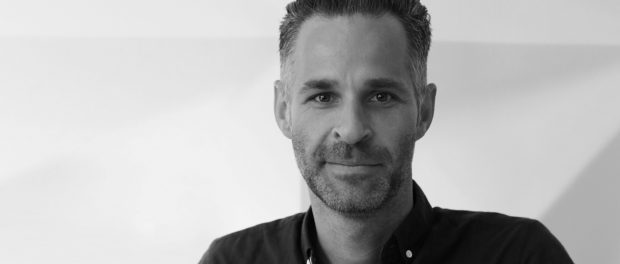Mastering the evolution of hospitality design

Ewald Damen – Creative Director / Managing Partner – Virgile + Partners
I maybe showing my age, but I remember the thick holiday catalogue arriving in the post full of offers of inclusive get-aways to exotic countries.
Back in the day, we would visit a travel agent to book our summer break, having already done our research looking through the grainy pictured catalogue with its five-sentence description of the hotel, location and amenities.
Times have really changed in terms of how we select our holidays and what we expect of them.
The World Wide Web has surely had a massive influence on the way we research our precious vacation time – with the increased access to information helping us create more tailored adventures at different budgets. No longer relying on that one travel agent, or the printed reviews in catalogues, we can all be more selective in where we go and what we do.
Through internet search and our growing access to digital content, we can be far more specific and informed in our choices, enabling us to find travel options we could not have possibly found in the past.
One upshot has been the creation of a much more competitive market. This access and convenience have allowed a much broader group of people to travel over the past decades, The birth of the low-cost airline business has further established a new era for travel – with more affordable flights meaning people are flying more frequently.
But the question is, can our exuberant travel behaviour continue, or are we at a turning point once again? And how does this influence the design of the hospitality industry?
In the pandemic lockdowns, travel came to an almost complete standstill, which seems to have had a lasting effect on the travel industry. Not only did work travel grind to a halt – promptly replaced by the ubiquitous Zoom meetings – but our personal leisure adventures were similarly taken away. They have slowly returned but with many complications.
Although travellers have resumed their habits of jumping on the plane or train to head to new horizons for some much-needed rest and recreation, it seems the numbers are not quite back to pre-pandemic levels. This is partly to do with increased pricing, less frequent connections and the travel industry still struggling with staff and supply issues. The prevalence of delays or cancellations suggests the need for longer-term change.
The unfortunate result is that some of the fun has been lost, with travel becoming more laborious and problematic. Now it seems more hassle to board a plane to visit a friend in Milan or Berlin for the weekend, and the value for money equation has shifted. In addition, we see a higher consciousness of global warming, effecting what we expect from travel and ethical services.
Global, ethical and sustainability awareness have been building for some time, but the pandemic seems to have accelerated this. The pandemic, along with the growing climate-consciousness among the younger generation has resulted in consumers putting their ecological and social awareness at the heart of their choices. As people look to reduce their carbon footprint – compounded by the increasing fuel prices – how often and the way we travel and choose accommodation is all changing.
This rise in awareness will shift in expectations of travellers and guests will be felt across transport and accommodation. Equally, higher pricing will create a higher demand for quality service, and ultimately the standards of design.
We’ve long accepted the non-existing legroom on a plane for a ticket price cheaper than the train to the airport, but will passengers continue to accept this if prices keep inflating?
The same applies for hotel accommodation where prices have increased with some cities, such as London, inflating prices well beyond pre-COVID levels. Surely this will increase the guest expectation of what they get in return.
Social media continues to influence our choices. Our aspirations for that Instagrammable holiday have shaped what type of holiday is chosen. Influencers have tricked us into believing all hotels are the most glamorous and spectacular designed places with the most amazing (eco conscious and ethical) food.
This portrayal of the most perfect and boutique, individual experiences has reframed the standard hotel formula. With growing expectations, guests are looking for enhanced comfort and style.
These changes have contributed to the hospitality industry needing to create a strong ambiance through its design and service to stand out against the competition. Social media has presented a platform for guests to deliver their opinions and subsequently influence potential future guests’ choices.
Across the generations, increasingly tech savvy guests are more informed and are creating a changing demand. Rising costs and environmental awareness means we will most likely go back to opting for longer travel periods. We are also encouraged by the ability to combine work and pleasure when traveling – as more flexible remote working becomes normal. This will put another new layer of expectations on hotels, as guests will ask for different amenities like a decent place to work or relax in their room, or elsewhere in the hotel. It will most likely also include an increase in demand for tech connections and services.
Following boutique hotels as example, new and clever ways of thinking will need to be adopted so that they can still thrive. Ingenuity and a personal approach to providing for their guests – that often breaks the mould of the standard hotel formula – will appeal to guests looking for more innovative and comfortable solutions in a more individual and stylish setting. This is increasingly going to have to be met with more sensitivity to ethical, local communities and with responsible sustainability a focus.
The hospitality industry will need to understand and follow its guests in their new journey – so that it can provide them with a more exclusive and bespoke offering which matches their increasingly individual demands.

